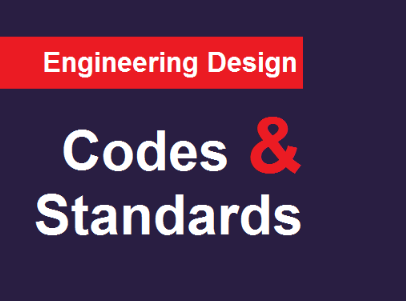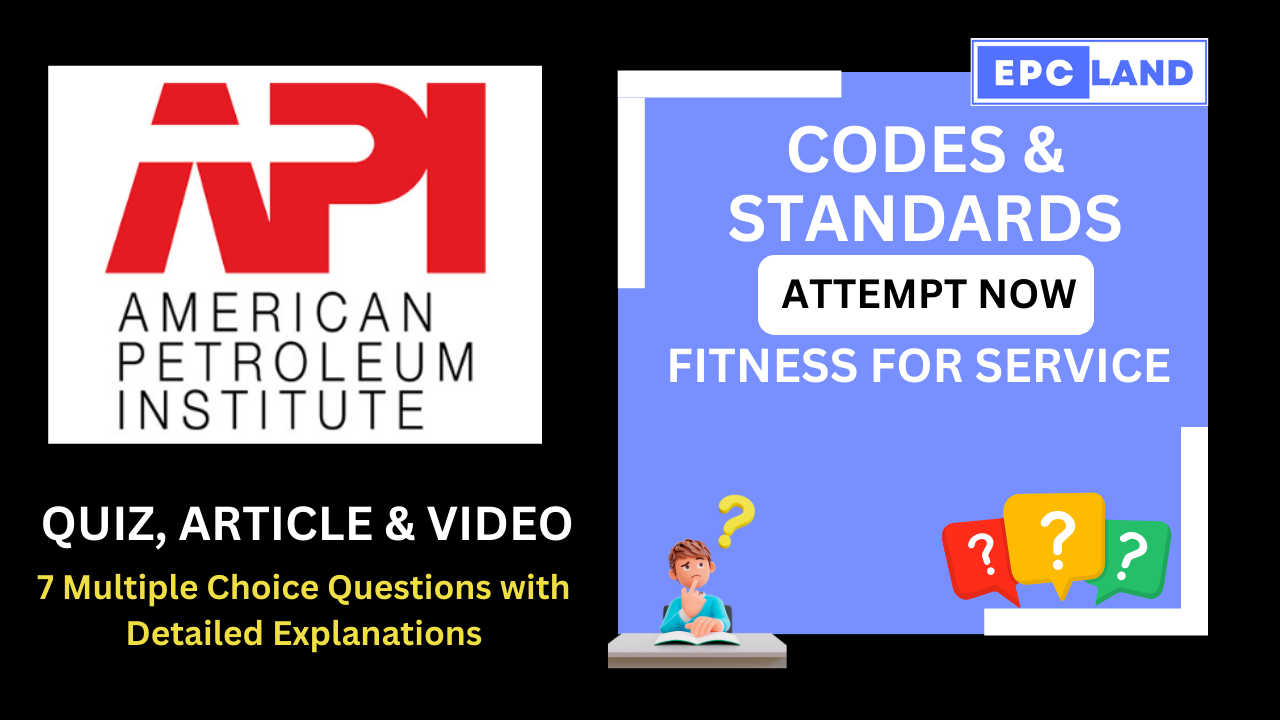

1. What is the primary purpose of Fitness for Service (FFS) assessments?
Choose the correct option:
Explanation: FFS assessments are conducted to assess the structural and mechanical soundness of existing equipment for continued operation.
2. Who uses Fitness for Service (FFS) assessments?
Identify the primary users of FFS assessments:
Explanation: Engineering companies use FFS assessments to assess the integrity of various components throughout their lifespan.
3. What are the benefits of Fitness for Service (FFS) assessments?
Select the correct statement regarding FFS benefits:
Explanation: FFS assessments provide enhanced safety, cost-effective decision-making, and effective problem-solving for equipment.
4. What key aspects does API 579/ASME FFS-1 cover?
Choose the correct description of API 579/ASME FFS-1:
Explanation: API 579/ASME FFS-1 provides quantitative engineering evaluations for pressurized equipment, guiding decision-making for flawed equipment.
5. What does the term “Thermomechanical analysis” involve in Fitness for Service (FFS) assessments?
Choose the correct description:
Explanation: Thermomechanical analysis involves evaluating equipment under normal and transient operating conditions, including potential faults.
6. Which equipment is covered by Fitness for Service (FFS) assessments?
Choose the correct statement regarding equipment coverage:
Explanation: FFS assessments cover a wide range of equipment, including heat recovery boilers, turbines, pressure vessels, valves, and more.
7. How can companies benefit from regularly conducting Fitness for Service (FFS) assessments?
Choose the correct statement regarding the benefits of regular FFS assessments:
Explanation: Regular FFS assessments provide enhanced reliability and safety, optimize operational efficiency, and help avoid costly accidents and downtime.
25+ Relevant topics on Codes & Standards
Short Article on Codes & Standards


Fitness for Service Explained: Keeping Your Equipment Safe and Reliable
Fitness for Service (FFS) is a crucial process in ensuring the safety and operational efficiency of equipment, particularly in demanding industries like oil and gas, hydrogen, power generation, and chemical processing.
What it does:
- FFS assessments determine if existing equipment is structurally and mechanically sound for continued operation.
- It helps prevent breakdowns, minimize risks, and avoid costly repairs.
- Assessments are based on international standards like API 579-1/ASME FFS-1, ensuring consistent and reliable evaluation.
Who uses it:
- Engineering companies use FFS to assess the integrity of a wide range of components, including boilers, pressure vessels, chemical reactors, storage tanks, piping systems, and pipelines.
- This applies throughout a component’s lifespan, from design to decommissioning.
Benefits of FFS:
- Enhanced safety: Prevents brittle and ductile fractures, metal loss, and other potential failures.
- Cost-effective decision-making: Helps determine whether to run, repair, or replace equipment based on its actual condition.
- Problem solving: Identifies and addresses issues that may arise during a component’s life.
Key aspects of API 579/ASME FFS-1:
- Provides quantitative engineering evaluations for pressurized equipment.
- Guides run-repair-replace decisions for equipment with flaws or operating under specific conditions.
- Recognized by various codes and standards as a valid method for evaluating structural integrity.
- Offers flexibility to assess equipment that may not comply with original construction codes due to defects, damage, or aging.
FFS Assessments cover a wide range of analyses:
- Thermomechanical analysis: Evaluates equipment under normal and transient operating conditions, including potential faults.
- Structural analysis: Detects anomalies and assesses the need for corrective measures.
- Design and verification: Ensures components meet safety requirements.
- Defect propagation and stability assessment: Predicts the behavior of flaws under operating conditions.
- Structural inspection results evaluation: Determines the severity of detected defects.
- Failure analysis: Investigates past failures and assesses potential future scenarios.
Equipment covered by FFS assessments:
- Heat recovery boilers and steam generators
- Pipelines
- Turbines
- Pressure vessels
- Valves
- Piping
- Tubes
- Furnaces
- Reactors
- Heat exchangers
- Storage tanks
By regularly conducting FFS assessments, companies can ensure the reliability and safety of their equipment, optimize operational efficiency, and avoid costly accidents and downtime.
I hope this explanation provides a clear understanding of Fitness for Service and its crucial role in maintaining equipment integrity and safety.
Table of Contents
Don’t miss the Course on Effective Isometrics Management: Check Now
Enrollment Link
Recommended courses (Published on EPCLand)
- Complete Course on Piping Engineering
- Basics of Piping Engineering
- Piping Layout Engineering
- Piping Material Engineering
- Piping Stress Analysis
- Material Requisitions
- Piping Material Specifications
- Valve Material Specifications
- Plant Design & Layouts-OISD 118
- Isometric Management
Library of Technical Articles
Don’t miss out the collection of 15+ articles on following topics:
- Basics of Oil and Gas Industry
- Valves
- Testing
- Tank
- Piping Bulk Items
- Pipe
- Metallurgy
- Piping Materials
- Layout
- Instrumentation
- Heat Exchanger
- Type of Contracts
- Codes and Standards
- ASTM Standards
- Articles on Piping Specialty Items
Video details of Complete Course on Piping Engineering
Why Enroll in the EPCLand
Proven Track Record– PTR
Activities & Achievements before launching EPCLand
- Published more than 50+ short courses
- 3000+ Enrolments
- More than 3,500,00 Minutes of watch hours in the last 2 years
- 4000+ Students in 100+ Countries
- Rating of 4+ out of 5
- 1000+ YouTube Videos
- 8K+ Subscribers
What Students will Learn
- Codes & Standards of the Energy Sector
- Piping Material Engineering
- Piping Layout Engineering
- Stress Analysis
Interesting facts
- All the published courses have been developed by Industry Experts with more than 2 decades of experience
- Content is based on Practical experience and real-time problems.
- Content is designed and organized in such a manner that it can be easily grabbed.
- Complete website, Blogs and Quiz sections are Planned, Designed and published by myself (About me: Atul Singla)
- Complete flexibility of Time & Location, Students can access the content from anywhere & anytime
- Moreover, once enrolled, the content can be access as many times as you want, which helps in understand the fundamentals in a better way.
Conclusion
In conclusion, our courses are meticulously crafted by industry experts with over two decades of hands-on experience. The content is rooted in practical knowledge, addressing real-time problems. The material is thoughtfully designed and organized for easy comprehension. Every aspect, from the website to blogs and quizzes, has been planned, designed, and executed by Atul Singla, ensuring a comprehensive and seamless learning experience. With the flexibility of accessing the content at any time and from any location, students have the freedom to learn on their terms. Furthermore, enrollment grants unlimited access, allowing learners to revisit the material as often as needed, fostering a deep understanding of the fundamentals.



